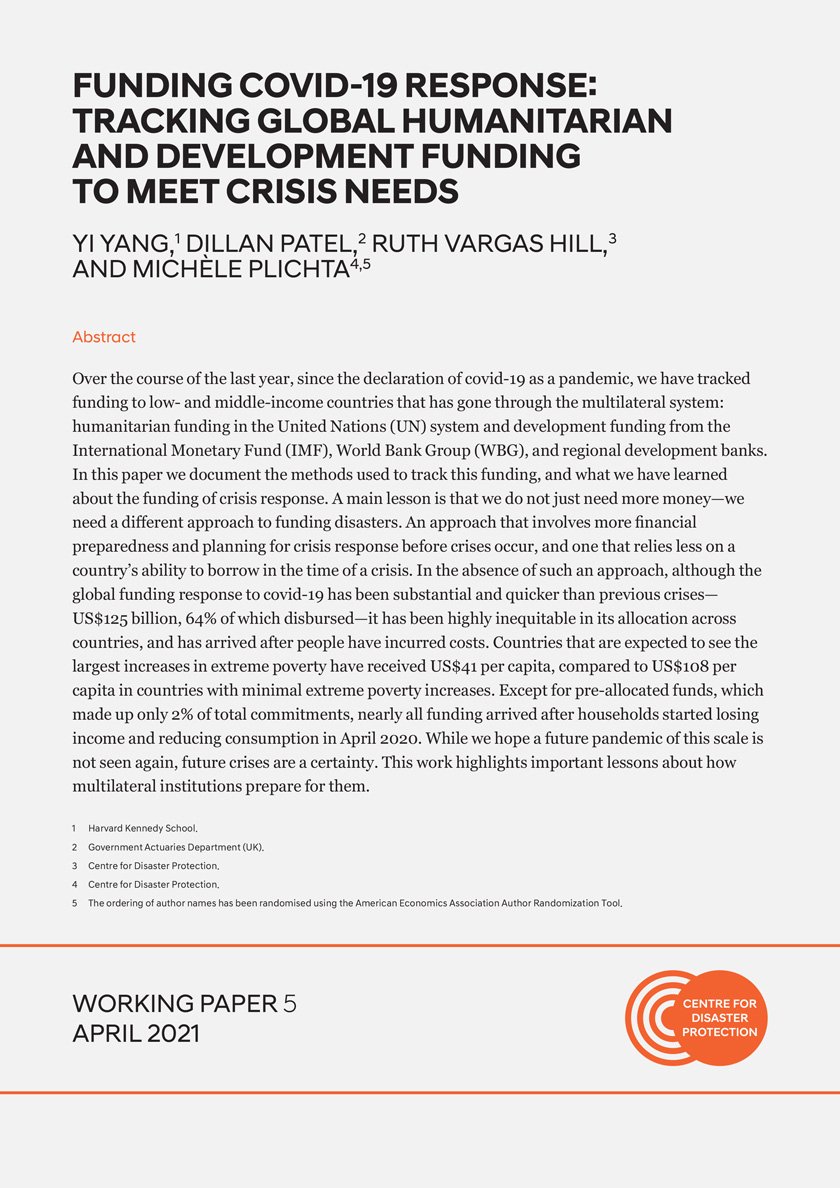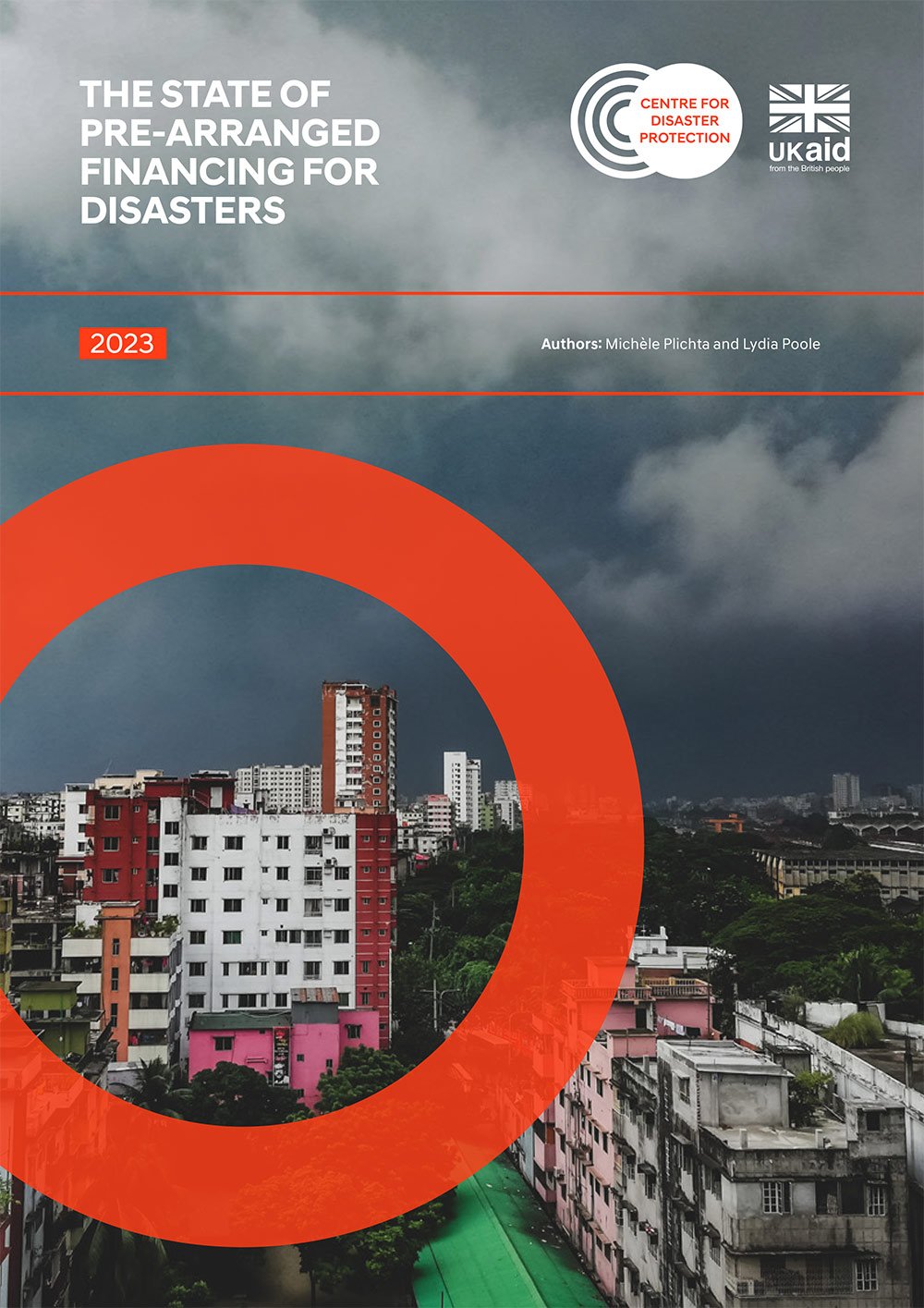FUNDING COVID-19 RESPONSE: TRACKING HUMANITARIAN AND DEVELOPMENT FUNDING TO MEET CRISIS NEEDS

For the past year, the Centre has tracked funding via the multilateral system intended to support the covid-19 response in low- and middle-income countries. This research has highlighted the flaws in the current system which is not always able to support response where need is greatest.
RELATED PUBLICATIONS
Planning and preparing for shocks pays. Prearranged Financing (PAF) for disasters has the potential to significantly increase the predictability, speed and effectiveness of responses to shocks. Currently, it is unclear how much pre-arranged finance is required to protect crisis-vulnerable people against risk, how much coverage there is in place, and how far we are from achieving adequate coverage, targeted to the right places, for those people most at risk. This data-led report collates the best available data to start to assess and monitor annually the state of pre-arranged financing supported with international development financing in low-and middle-income countries.
This note intends to shift the discussion on pandemic and epidemic risk finance to a practical approach about the benefits of applying a disaster risk finance (DRF) lens to new financial mechanisms as they are developed and deployed. It outlines key trends of financial flows toward outbreak response and identifies relevant emerging initiatives and opportunities to help governments scale up pre-agreed finance.
Alongside the Airbel Research and Innovation Lab at the International Rescue Committee (IRC) we provide key lessons for how effective crisis response can be financed and triggered, useful across a broad range of organizations that engage in crisis response. This work is a first step towards developing a practical and pragmatic blueprint for how organisations can systematically re-orient their resources and processes towards a state of readiness for future crises. You can also read our ‘Exploring triggers’ blog.
This discussion paper examines the unequal impacts of the pandemic across different groups, the potential consequences for long-term inequality, and the implications of both of these for policy. Although realtime data on the impact of covid-19 in developing countries is currently scarce, early data from surveys during the crisis period, together with available evidence from past shocks, form a useful basis for the discussion.
This discussion paper examines the unequal impacts of the pandemic across different groups, the potential consequences for long-term inequality, and the implications of both of these for policy. Although realtime data on the impact of covid-19 in developing countries is currently scarce, early data from surveys during the crisis period, together with available evidence from past shocks, form a useful basis for the discussion.





